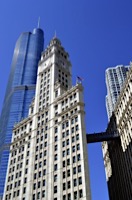
Kickstarter started as a way for bands to fund projects without asking for money from Grandma. Now it’s the go-to site for thousands self-funded projects and the company recently surpassed the facilitating of $60 million in funding of random music albums, films, and gadgets created by ordinary people.
At TechCrunch Disrupt NYC John Biggs sat down with Kickstarter’s Yancey Stickler along with several successful Kickstarter gadget makers: Dan Provost from Glif and Cosmonaut, Rafael Atijas of the Loog, and Sean Bonner from Safecast. It was through the magic of Kickstarter that all these gadgets were funded and later created. It’s rather scary to think of a world without the Glif, right?













 Last week Intellectual Ventures revealed its list of major investors. On it were several major U.S. research universities and research organizations.
Last week Intellectual Ventures revealed its list of major investors. On it were several major U.S. research universities and research organizations.




 A friend of mine, the CEO of a professional services firm, recently gave me a copy of David Maister’s
A friend of mine, the CEO of a professional services firm, recently gave me a copy of David Maister’s 
